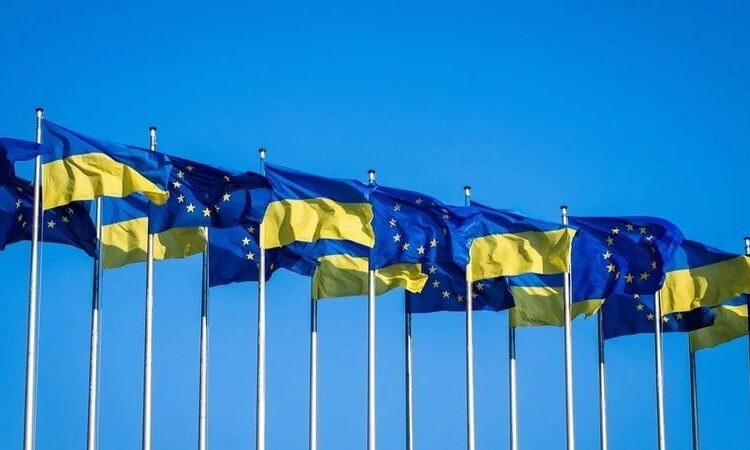EU summit fails to establish mechanism for redirecting frozen Russian funds for Ukraine reconstruction

None of the proposals on how to use frozen Russian assets to rebuild Ukraine has received sufficient support in the EU Council, German broadcaster Deutsche Welle reported on Oct. 27, citing a diplomat from an EU member state.
At a summit in Brussels on Oct. 26-27, European Council President Charles Michel emphasized that the EU’s key priority now was to show that it supports Ukraine and to find ways to provide more assistance.
The topic of frozen Russian assets was reportedly on the agenda of the summit, and Estonian Prime Minister Kaja Kallas proposed her own mechanism.
Read also: Washington and Brussels explore ways to reallocate Russian assets to rebuild Ukraine
She noted Ukraine is documenting war crimes for the international courts in The Hague, and making claims against Russia. Similarly, Russia’s seized property sits within the EU, while Russia maintains its own claims against bloc members. She argued this establishes grounds for the EU to reconcile both sets of claims.
Kallas added that after the war is over, Russia or Russian oligarchs can turn to the bloc and if there are funds left over after the payment of reparations to Ukraine, then they could “settle it among themselves.”
Read also: Most Ukrainians strongly support EU membership and reforms to join, KIIS poll results
It is extremely important to use these assets in the interests of Ukraine and not to resort to taxpayer funds, as they are needed for other purposes, including weapons, the Estonian official said.
Earlier, U.S. Secretary of State Antony Blinken said that his country, together with the European Union, is considering legal authority to direct $300 billion of Russian assets to rebuild Ukraine, as well as other needs it has.
On Jan. 26, the EU Council’s legal service devised a plan to use the frozen assets of the Russian Central Bank, worth about $36.8 billion, to finance Ukraine’s recovery.
As a result of arrests and various mechanisms of confiscation of assets of Russians and collaborators in Ukraine, UAH 28.3 billion ($776.5 million) has been transferred to the state budget since Feb. 24, 2022.
However, according to Bloomberg, the EU has assessed that it cannot legally confiscate fully frozen Russian assets and is instead focusing on the temporary use of these assets.
The fund will be financed using Russian assets frozen within the country. Zelenskyy noted that Belgium would be the first country to use frozen Russian assets to support Ukraine.
We’re bringing the voice of Ukraine to the world. Support us with a one-time donation, or become a Patron!
Read the original article on The New Voice of Ukraine






